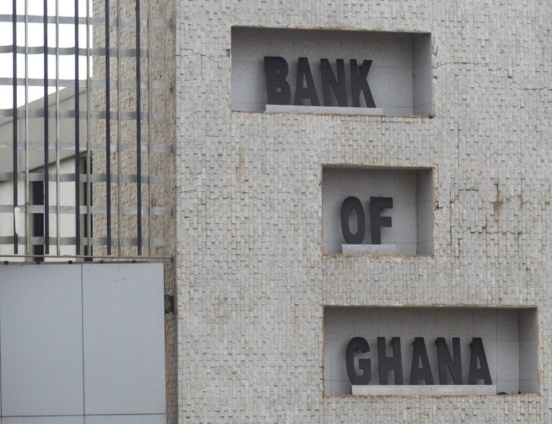The Executive Director of the Chamber of Petroleum Consumers Ghana (COPEC) has cautioned the Bank of Ghana (BoG) against the needless auctioning of the dollars on the open market.
According to him, the Bank should direct its dollar reserves toward one of the critical petroleum imports.
He added that if the bank refuses to take that step, “you are simply going to have them [OMCs] go to the black market and the BDCs also to go and sought for the dollar. And you and I know the black market rate usually will be a bit higher than the interbank rate.”
He said that the “Bank of Ghana will need to classify petroleum importation a bit differently from how we treat other general import into the country.”
His comment follows the assertion from the Bulk Distribution Companies (BDCs) that persistent hike in the fuel prices is as the result of the weak and depreciating cedi.
In an interview on Joy FM's Midday News, Mr Amoah confirmed the BDC's claim that the weak cedi is contributing to the increase in fuel prices.
“If you look at the position of the cedi currently, it is difficult to contest and to put pressure for them to reduce their prices especially when you look at the fact that they would need to reconvert the cedi noted to dollars to be able to pay their suppliers,” he explained.
According to him, the only way this situation would be addressed is when the cedi is stabilised.
He stated that once the cedi is stabilised, the price increases in fuel will be reduced.
“As we speak, international market are beginning to drop bit by bit, cool off as they would say. Unfortunately, the cedi is not cooling off and so even where you would find prices on the international market declining and the cedi continuously depreciating, you would, unfortunately, have to pay more for fuel and that for us is worrying,” he stated.
Meanwhile, prices of petroleum products will from Wednesday, March 16 experience a significant surge as consumers are expected to pay ¢11 per litre.
The Bulk Oil Distributors has blamed the situation on the volatility on the market as well as the rising cost of crude on the international market.
According to the Chief Executive, Senyo Hosi, the cedi which is depreciating among other major trading currencies is also a factor for the rise in the price of the commodities.
“This is not really with crude but with products on a metric tonne basis. You’re actually breaking the pair and likely breaking 11 as well, subject to which product and how the OMCs want to add some margins on their current prices.
“What you see from the OMCs publication is quite reflective of what the market situation is and I think a big chunk of it has to do with some of the onset increase around our current cedi issues,” he said.
Latest Stories
-
‘Man gives the award, God gives the reward’ – Denzel Washington addresses Oscars snub
4 hours -
BoG announces new set of regulatory measures to check NPLs
4 hours -
BoG urges financial institutions to maintain a robust credit risk management framework
4 hours -
Fire officers contain inferno at Nogora commercial enclave at Ho Technical University
4 hours -
European leaders tentatively hopeful after call with Trump ahead of Putin summit
5 hours -
Trademarks are not one size fits all; register them by class – Sarah Norkor Anku tells SMEs
6 hours -
Cardinal Turkson urges caution and discernment in interpreting prophecies
6 hours -
NPP activists Sir Obama Pokuase, Fante Comedy granted bail but remain in custody
6 hours -
Man sentenced to 10 years for robbery-related offences in Tumu
7 hours -
OR Foundation partners with GNFS to train Kantamanto traders on fire safety
8 hours -
Mob attacks IGP’s special anti-galamsey taskforce at Bonteso in Ashanti region
8 hours -
Mireku Duker denies media reports on presidential ambition
8 hours -
Suspended Chief Justice pays tribute to victims of helicopter crash
8 hours -
Guinness Ghana DJ Awards 2025: Smirnoff-powered Pub Fest ignites Winneba with top DJs
8 hours -
Kumasi Archbishop leads delegation to console Asantehene over Asantehemaa’s passing
8 hours

